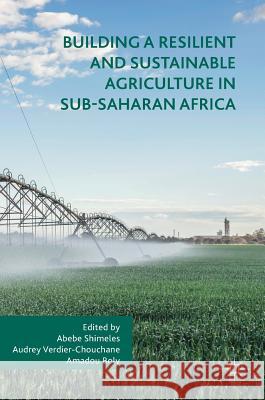Building a Resilient and Sustainable Agriculture in Sub-Saharan Africa » książka
topmenu
Building a Resilient and Sustainable Agriculture in Sub-Saharan Africa
ISBN-13: 9783319762210 / Angielski / Twarda / 2018 / 302 str.
Kategorie:
Kategorie BISAC:
Wydawca:
Palgrave MacMillan
Język:
Angielski
ISBN-13:
9783319762210
Rok wydania:
2018
Wydanie:
2018
Ilość stron:
302
Waga:
0.68 kg
Wymiary:
21.01 x 14.81 x 2.69
Oprawa:
Twarda
Wolumenów:
01
Dodatkowe informacje:
Wydanie ilustrowane











